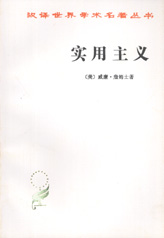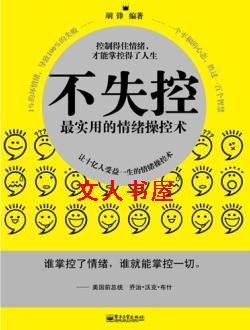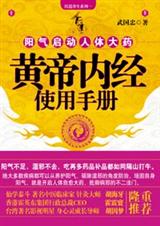牛津实用英语语法-第7章
按键盘上方向键 ← 或 → 可快速上下翻页,按键盘上的 Enter 键可回到本书目录页,按键盘上方向键 ↑ 可回到本页顶部!
————未阅读完?加入书签已便下次继续阅读!
(参见用做代词的形容词的比较级、最高级,第24节B。)
C三个或三个以上的人或物进行比较时,以最高级与the…in/of结构连用的方式来表达:
This is the oldest theatre in London.
这是伦敦最古老的剧院。
The youngest of the family was the most successful.
全家年龄最小的是最有成就的。
关系从句中经常使用完成时态:
It/This is the best beer(that) I have ever drunk.
这是我所喝过的最好的啤酒。
It/This was the worst film(that) he had ever seen.
这是他所看过的电影中最差的一部。
He is the kindest man(that) I have ever met.
他是我遇到过的最仁厚的人。
It was the most worrying day(that) he had ever spent.
这是他度过的最烦恼的日子。
注意:这里用的是ever而不是never;然而可以把never与比较级连用来表示同一概念:
I have never drunk better beer.
我从来没喝过这么好的啤酒。
I have never met a kinder man.
我从来没遇见过这么仁厚的人。
He had never spent a more worrying day.
他从来没有度过这样烦恼的日子。
注意:most+形容词(most前不加the)意为“非常”:
You are most kind.相当于:
You are very kind.
你很好心。
意为“非常”的most主要和双音节或多音节形容词连用,如:annoying(令人烦恼的),apologetic(歉意的),disobedient(不服从的),encouraging(令人鼓舞的),exciting(兴奋的),helpful(有帮助的),important(重要的),misleading(误导的)等。
D要表达两个事物彼此相应增长时可用the+比较级…the+ 比较级这种结构:
House Agent:Do you want a big house?
房地产经纪人:你想买一栋大房子吗?
Ann:Yes,the bigger the better.
安:是的,越大越好。
Tom:But the smaller it is,the less it will cost us to heat.
汤姆:可是,房子越小,花的取暖费就越少。
E一个事物的逐渐增长或减少用两个由and连接的比较级表示:
The weather is getting colder and colder.
天气越来越冷了。
He became less and less interested.
他越来越不感兴趣。
F用动名词或动词不定式对行为进行比较:
Riding a horse is not as easy as riding a motor cycle.
骑马不像骑摩托那么容易。
It is nicer/more fun to go with someone than to go alone.
偕伴同去比自己独自去好玩。
(参见第341节。)
G原级与like(相似,介词)和alike连用的结构:
Tom is very like Bill.
汤姆长得很像比尔。
Bill and Tom are very alike.
贝尔和汤姆长得很像。
He keeps the central heating full on.It’s like living in the tropics.
他把暖气开到最大。就好像住在热带一样。
H原级与like和as连用(下面列举几个副词和形容词的句子)从理论上讲like(介词)只能与名词、代词和动名词连用:
He swims like a fish.
他游起泳来像条鱼。
You look like a ghost.
你都不像人样了。
Be like Peter/him:go jogging.
像彼得/他那样:去慢跑吧。
The windows were all barred.It was like being in prison.
窗子都用铁棒封住了。就像住在监狱里一样。
as(连词)与动词连用的结构:
Do as Peter does:go jogging.
像彼得那样:去慢跑吧。
Why don’t you cycle to work as we do?
你干嘛不像我们这样骑车上班?
但在英语口语中,这些地方常用like代替as:
Cycle to work like we do.
像我们一样骑车上班。
I like+名词和as+名词结构:
He worked like a slave.
他像奴隶一样地干活。(非常劳累)
He worked as a slave.
他作为奴隶干活。(他是奴隶。)
She used her umberlla as a weapon.
她拿伞当武器。(她用伞打他。)
?
'Amber demo'
22 than/as+代词+助动词
?
A当than或as的前后所用的动词相同时,常可以用助动词代替第二个动词:
I earn less than he does.
我比他钱挣得少。
主句与从句中的动词不必使用同一时态:
He knows more than I did at his age.
他要比我在他这个年龄时懂得多。
B如从句由than/as+I/we/you+动词组成而时态并无变化时,常常将动词省略:
I’m not as old as you(are).
我没有你年龄大。
He has more time than I/we(have).
他的时间比我/我们多。
正规英语中as/than后仍使用I/we,因为动词虽被省略,代词仍被看做是动词的主语,因此仍用主格。但在非正式英语中,me/us更常用:
He had more time than me.
他比我时间多。
They are richer than us.
他们比我们富有。
C如than/as后跟he/she/it+动词,常常保留动词:
You are stronger than he is.
你比他强壮。
但在极正式的英语中,可以用he/she/they而免去动词。在非常口语化的英语中可用him/her/them而免去动词。
这些规则也适用于副词比较级:
I swim better than he does/better than him.
我游泳比他好。
They work harder than we do/harder than us.
他们比我们干得卖劲。
You can’t type as fast as I can/as fast as me.
你打字不如我快。
?
'Amber demo'
23 the+形容词
?
A blind(失明的),deaf(聋的),disabled(残废的),healthy(健康的)/sick(病弱的), living(活的)/dead(死的), rich(富有的)/poor(贫穷的),unemployed(失业的)以及其他某些说明人的性格或状态的形容词,前面加the时可以代表一类人。这
一表达方式具有复数含义,所以动词也用复数形式,代词则用they:
The poor get poorer;the rich get richer.
穷者愈穷;富者愈富。
the+表示国籍的以ch或sh结尾的形容词也是同样用法:
the Dutch荷兰人
the Spanish西班牙人
the Welsh威尔士人
以se或ss结尾的表示国籍的形容词也可以这样用:
the Burmese缅甸人
the Chinese中国人
the Japanese日本人
the Swiss瑞士人
但这些表达方式也有可能是单数的意思。
B注意:the+形容词只是泛指某一类人,假如要特指某一部分人,则必须加名词:
These seats are for the disabled.
这些座位供残疾人坐。
The disabled members of our party were let in free.
我们一伙中的残疾人是免费入场的。
The French like to eat well.
法国人很讲究吃。
The French tourists plained about the food.
法国旅客抱怨食物不好。
一些表示颜色的形容词后加上s作复数名词用时也代表一类人:
the blacks黑人
the whites白人
C the+形容词偶尔也有单数含义:
the accused(person)被告人
the unexpected(thing)意外的事
?
'Amber demo'
24形容词+one/ones和形容词作代词
?
A大多数形容词可以和代词one(单数)/ones(复数)连用,这时one/ones代表前面已经提到过的名词:
Don’t buy the expensive apples;get the cheaper ones.
别买那价钱贵的苹果,买那便宜的。
Hard beds are healthier than soft ones.
硬板床比软床有利于健康。
I lost my old camera;this is a new one.
我的旧相机丢了;这是一架新的。
数词+形容词也可以带one/ones:
If you haven’t got a big plate,two small ones will do.
如果没有大盘子,两个小盘也行。
B形容词作代词
first(第一)/second(第二)等可以和one/ones连用,也可以不和one/ones连用,即它们既可以作形容词又可以作代词:
—Which train did you catch?
—I caught the first(one).
—你赶上了哪班车?
—我赶上了头班车。
the+最高级也可以同样使用:
Tom is the best(runner).
汤姆是(跑得)最棒的。
The eldest was only ten.
最大的才十岁。
有时the+比较级也可以这样用:
Which(of these two)is the stronger?
(这两个之中)哪一个更强壮?
比较级的这种用法被认为更有书面英语的味道,在非正式英语中我们常用最高级来替代:
Which(of these two)is the strongest?
(两者中)哪个是最强壮的?
表示颜色的形容词有时可用做代词:
I like the blue(one) best.
我最喜欢蓝色的(那一个)。
表示马的颜色的词,特别是bay(红棕色的)、chestnu(栗色的),grey(灰色的),常当代词用,词尾加上s时表示复数:
Everyone expected the chestnut to win.
大家都预期那匹栗色的马能获胜。
The coach was drawn by four greys.
大马车由四匹灰色的马拉着。
?
'Amber demo'
25 many和much的用法(作形容词和代词)
?
A many和much
many(形容词)用在可数名词之前。
much(形容词)用在不可数名词之前。
He didn’t make many mistakes.
他没犯多少错。
We haven’t much coffee.
家里的咖啡不多了。
many和much的比较级和最高级形式相同,都是more和most:
more mistakes/coffee更多的错误/咖啡
most men/damage 几乎全部的男士/几乎所有的损害
many,much,more,most可作代词使用:
He gets a lot of letters but she doesn’t get many.
他收到的信很多,可她的信不多。
You have a lot of free time but I haven’t much.
你有许多空闲时间,可我没有。
more和most的用法较灵活,many和much在否定动词后面用得比较多(见上文的例子),但many和much在肯定动词和疑问动词后用法较受限制。
B many和much与肯定动词连用
many前加上a good/great时可与肯定动词连用。many与much用so/as/too修饰时也可以与肯定动词连用。
I made a good many friends there.
我在那里交了许多朋友。
He has had so many jobs that.
他做过了这么多种工作,以致……
She read as much as she could.
她尽量多读书。
They drink too much(gin).
他们(杜松子酒)喝得太多了。
many是宾语或宾语的一部分而前面不加任何修饰语时,常常被 a lot/lots of(+名词)或a lot,lots(代词)代替。much是宾语或宾语的一部分时常常被a great/good deal of(+名词)或agreat/good deal(代词)代替:
I saw a lot/lots of seabirds.I expect you saw a lot too.
我看到了许多海鸟。想必你也看到了许多。
He spends a lot/lots of/a great deal of money on his house.
他在房子上花很多钱。
既可以用many也可以用a lot(of)作主语或作主语的一部分,
但这里的much通常由其他形式代替。
但much在正规英语中是允许这样用的:
Much will depend on what the minister says.
很多事要取决于部长怎么说。
试将肯定句和否定句作一比较:
He hasn’t won many races.
他没有赢过几次比赛。
You’ve won a lot/lots of races./You’ve won a lot./You’ve won a greatmany(races).
你赢过多次比赛。
He didn’t eat much fruit.
他没有吃多少水果。
She ate a lot/lots/a great deal of fruit./She ate a lot/a great deal.
她吃了大量的水果。
C many和much与疑问动词连用
两者前都可加how:
How many times?
多少次?
How much?
多少?
在不用how的问句中,many也可使用。如预期得到的是肯定的回答,则最好使用a lot(of):
Did you take a lot of photos?I expect you did.
你拍了许多照片吗?我想你拍了。
用much时不加how是可行的,但其他的几种用法更常见:
Did you have a lot of snow/much snow last year?
去年你们那儿雪下得多吗?
(关于much作副词的用法,参见第33节。)
?
'Amber demo'
26形容词+动词不定式
?





